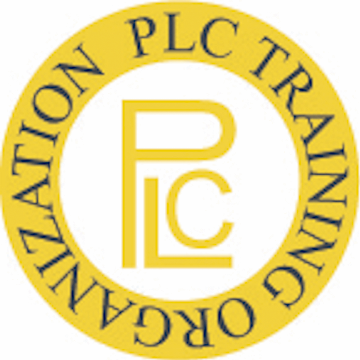Note to PLC programming schools:
We highly encourage schools offering PLC programming training to utilize this site’s recommended best practices for PLC training and approved resources. Some community colleges, PLC vendors, and private PLC training companies fail to meet the critical criteria of the PLC Training Foundation altogether. Of course, there may be valid reasons, such as a lack of adequate time allotted for this field of study, relying on a single source for the instructor, being accustomed to delivering theory and scholastic education only, and being less experienced in training and providing practical skills, among others. Therefore, we hope this site will help you diversify your PLC knowledge and skills, and bridge the gap between the education delivered and what employers need to minimize downtime and risk to both people and machines.
This site offers numerous helpful tips on both standard and less common knowledge for delivering the best PLC programming training. A common oversight among most PLC training providers is the distinction between a PLC and a PAC, which is often unclear to students/customers. Some of the most essential advice for schools and others delivering PLC programming training is...
- Add "working with PLCs safely and reliably" to the curriculum. (the core PLC foundation)
- Teach the difference between a PLC and a PAC.
- Have students/employees master PLCs before moving on to PAC and other advanced topics.
- Before students/employees move on to advanced topics, ensure that their computer problem-solving and attention to detail skills are first.
- Utilize recommended troubleshooting training software to improve their skill.
- Provide them with experience on at least two brands of PLCs, if teaching SCADA, with the same recommendation.
- Teach best practice PLC programming.
Schools running a PLC programming/automation design master’s program should ensure that students get the following course...
- Linear Models
- Control-oriented Models for System Design
- Block Diagram Models
- Gain/phase Margins
- PID Design
- PID Tuning
- Time Domain Performance Specifications
- Lead, Lag, Lead-lag Compensation
- Integrator Windup
- Frequency Domain Analysis
- Specification and Requirements Analysis of Control Systems
- A/D Conversion and Quantization
- Shannon-Nyquist Sampling Theorem
- Characteristics of Sensors and Actuators
- PLC, SCADA or other Industrial System Programming
- Discrete-time Systems
- Networks and Distributed Control
- MATLAB TM, Simulink TM and LabVIEW TM
… and fewer needed subjects in general, but may be specific to your industry.
The above-recommended college topics are based on a survey of employers as well as professionals recently entering the field from school.
If you are an individual, we recommend you tell your PLC 'Training’ provider you do not want just scholastic education, you want actual training that includes best practices. Please comment below if you have something productive to add to this site.
